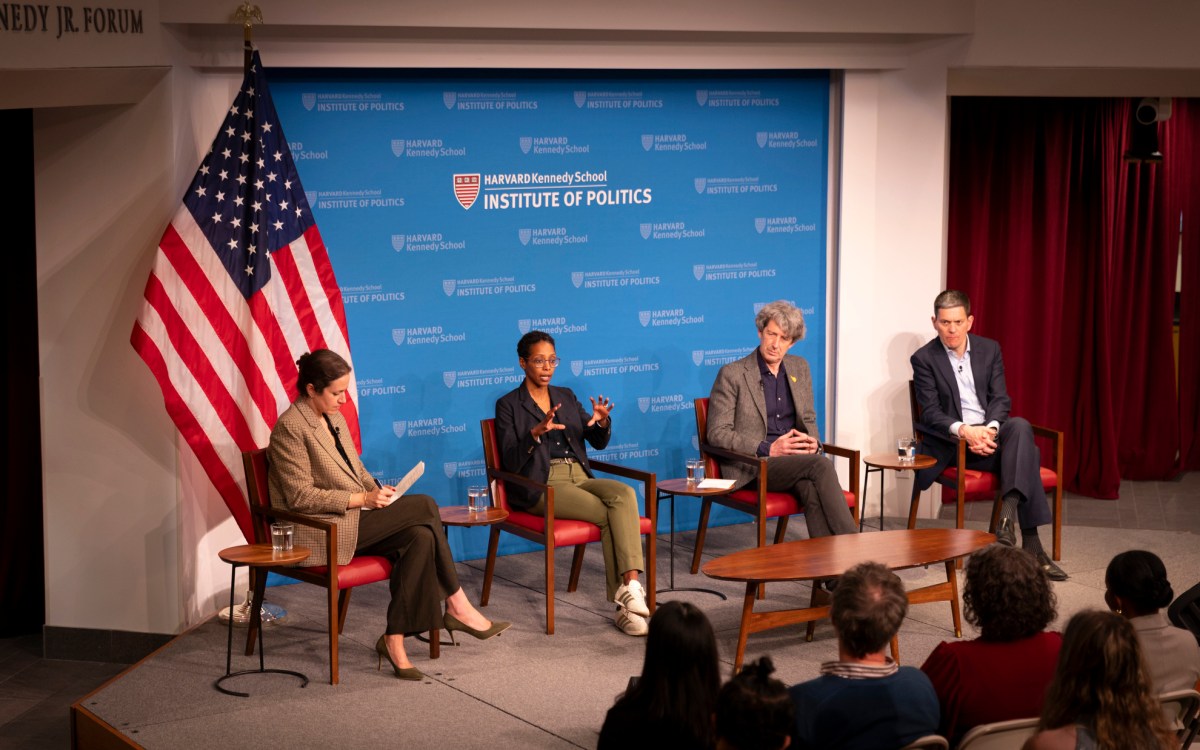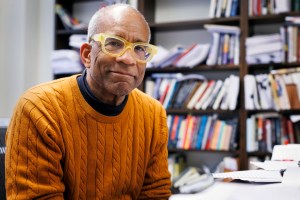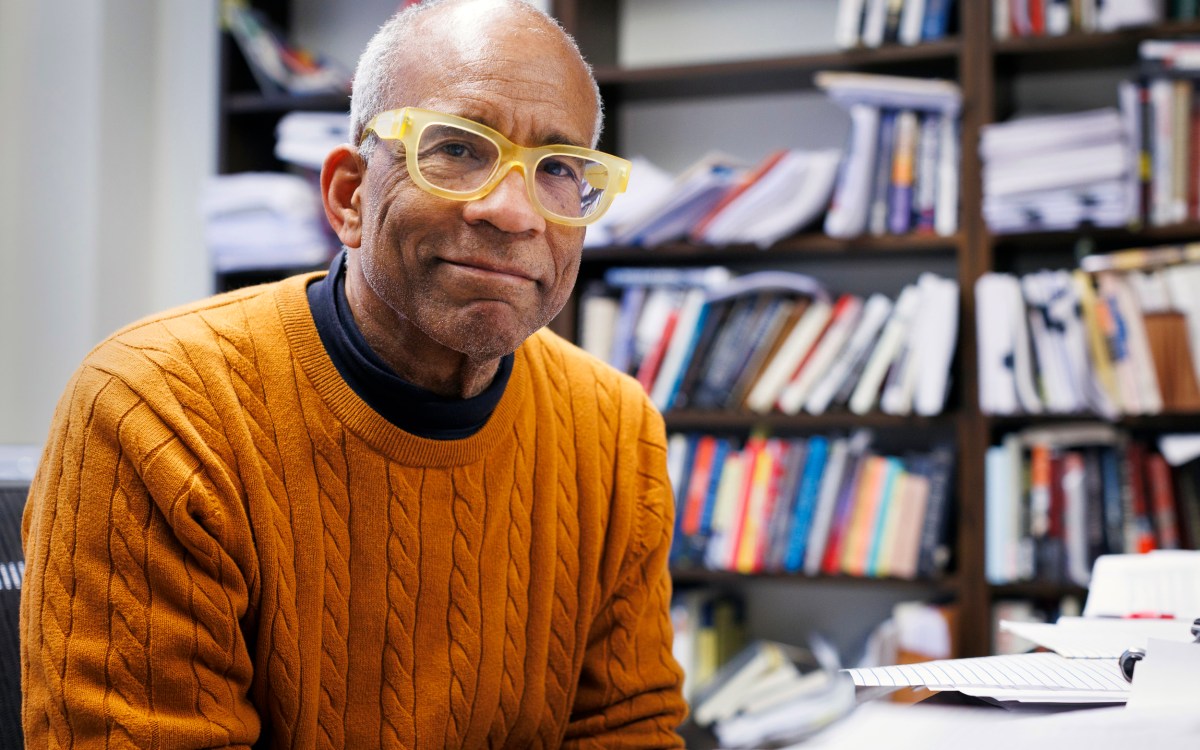Black belt Lee battles in the arena of world politics
Born in the United Kingdom, but raised for most of her first six years in Hong Kong, transnational Harvard graduate student Yue Man Lee grew up a fervent lover of reading, travel, and food.
In her words, she was also “sporty in those days” — a hiker, dancer (contemporary and ballet), and an expert in karate who was once a United Kingdom national junior champion.
“I was a black belt, but I never hurt anyone,” said Lee, with a big laugh.
And why not be happy? This afternoon (June 5), the diminutive 30-year-old will receive her master’s degree in public administration/international development (M.P.A./ID) from Harvard’s John F. Kennedy School of Government (HKS). It’s a rigorous track that this year has about 35 graduates from a medley of countries, including Kazakhstan, Ethiopia, and Ecuador.
They’re a famously social group — themed dances and parties, weekly talks, and even a weekly M.P.A./ID poker club that Lee directs. “We’re redistributing wealth,” she said.
Educated at Oxford, Lee still likes all of the things she did in her younger days, though there is less time for hiking and more desire for eating. “Being Chinese,” she said, “I love eating, and cooking, and eating some more.”
These days, this black belt reserves her championship punches and kicks fighting for what she thinks international development should be: a path to social justice and economic equality.
Her vision of it is like the course she taught this spring at Harvard College — “the intersection of economics and human rights,” said Lee.
Development — economic, social, and political — is “about freedom,” she said, “and that means empowering people so the whole process is participatory. It’s not just about multinational institutions or rich countries imposing their will on developing counties. For a start, we know that doesn’t work.”
In her first year at HKS, Lee wrangled with tough courses in econometrics, a branch of “the dismal science” that tries to quantify what is hard to measure, like the impact of social programs. (In her second year, she taught econometrics to first-year students in the master’s in public policy program, and won an HKS award for her classroom skills.)
Lee also spent time learning the fine points of creating public-private partnerships and tough negotiating — a skill set Lee said would have completely changed her pre-Harvard experience in the nonprofit sector.
“Graduate school is really about taking a step back — getting new ideas, getting new frameworks and perspectives,” said Lee, who was accepted into the same program right out of Oxford, but didn’t get funding.
Six years later, being at Harvard was a much richer experience, she guessed, because she arrived on campus already seasoned by working in the real world. “I learned things you can’t learn in grad school,” said Lee, including how to manage people.
Experiencing two cultures — China and the United Kingdom — at a young age was seasoning too. Her mother’s family had escaped to Hong Kong during China’s Great Leap Forward, the 1958-60 social experiment in which millions died of starvation.
Lee’s wide travels since then have often been a window onto the kind of poverty that grips most of the world. “With travel,” she said, “you get a sense: This could have been me.”
Before and during her undergraduate work, Lee traveled extensively in Asia, Europe, South and Central America — and even spent one summer hitchhiking in Cuba.
As a young professional, she worked as a London-based strategic research consultant, traveling to projects in Sweden, Poland, and Botswana. For three years after that, Lee was executive director of the Mindset Network, a multimedia nonprofit in South Africa that specializes in nurses’ training and HIV and AIDS education.
Last summer, she worked at the Ministry of Health and Social Welfare in Liberia, a battered postconflict country where public health infrastructure had collapsed during a long civil war.
And early this year Lee went on an intensive one-week trip to Israel and Palestine, sponsored by HKS’s Israel Caucus, a student group. It was a race from one opposing world to another, from “sitting with the vice prime minister of Israel to Arafat’s tomb, all in the same day,” she said. There were also visits with politicians, negotiators, business owners, bankers, and soldiers from both sides. Said Lee, “We felt so lucky.”
Both in and out of school, travel was what inspired her to settle on a lifetime of doing development work in developing countries — that and the inspiring, unsung people she has met.
“There are so many brave people in the world” of development, said Lee, “and most of us don’t know about them.”
After graduation, she will work for Britain’s former prime minister Tony Blair, as a policy adviser in the Office of the President of Rwanda.
“My work will never be a 9-to-5 job,” said Lee. “My work is expressive of my values.”




